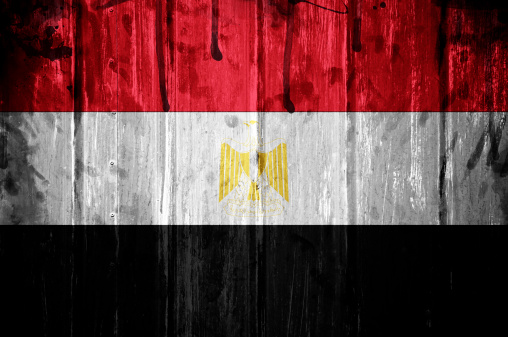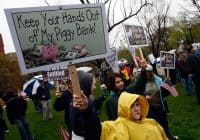Editor’s note: According to a number of news sources, nearly 200 more people died in rioting in Egypt on Friday and more protests are expected today
The Egyptian economy grew by 7% annually in the three years leading up to the global financial crisis of late 2008. Even during the depths of the global crisis, the country’s GDP growth was a healthy 5%. Since the first quarter of 2011, when the successful movement to oust former president Hosni Mubarak began, GDP growth has slowed to around 2.5%, according to a report from the World Bank published in May 2012.
That data foreshadowed what would happen to the Egyptian economy since last summer’s elections and the recent ousting of President Mohamed Morsi by a military-led coup. The economic situation is not improving, and the political situation that has so far claimed the lives of nearly 1,000 people is getting worse.
Egypt’s economy grew by 2.4% in the first six months (July to December) of its 2012-2013 fiscal year, slightly below World Bank estimates. In the first three months of 2013, that growth rate fell to 2.2%, according to government figures, and given the current unrest in the country, the growth rate is very likely to fall even further in the final quarter of the country’s fiscal year.
The largest issue is foreign direct investment (FDI), which has fallen from as much as $10 billion a few years ago to $1.3 billion in the first nine months of Egypt’s fiscal year. The country has sought a $4.8 billion loan from the International Monetary Fund (IMF), but has so far been unable to close the deal.
Another serious issue is that the country had halved its foreign reserves to about $19 billion in July, about half its total in December 2010. That makes it difficult for the country to purchase food and refined petroleum products, the country’s main imports. Egypt is the world’s largest importer of wheat.
The country’s exports totaled $2.4 billion in May, while imports totaled $4.7 billion. That $2.3 billion trade deficit is growing and likely will continue as long as there is no political solution in Egypt. The government, such as it is, needs to keep importing food and gasoline or the unrest in the country could become more widespread.
Egypt produced more than 700,000 barrels of oil a day in 2011 and has been a net exporter of crude. The country also has large natural gas reserves and exports about 20% of its production. These levels will be difficult to maintain until the country’s political situation is settled. Oil and minerals account for almost a third of the country’s exports.
Another major source of Egypt’s revenue comes from tourism, which totaled $8.08 billion in the first nine months of the 2012-2013 fiscal year.
Egypt’s revenues from the Suez Canal are down 3.6% in the first half of its fiscal year to $2.6 billion. The threat to canal traffic also affects crude oil and refined product prices, and traffic through the canal could slow down or be rerouted around the tip of Africa if the disruption and violence in the country gets worse.
Everything about the country’s economy is weak and getting weaker with each day that the violence in the streets continues. President Obama’s statement Wednesday that he is cancelling a scheduled military exercise with Egypt as a protest against the recent government crackdown on supports of former President Morsi is unlikely to have much impact on the political turmoil, and absolutely none at all on improving Egypt’s $260 billion economy.
Thank you for reading! Have some feedback for us?
Contact the 24/7 Wall St. editorial team.


